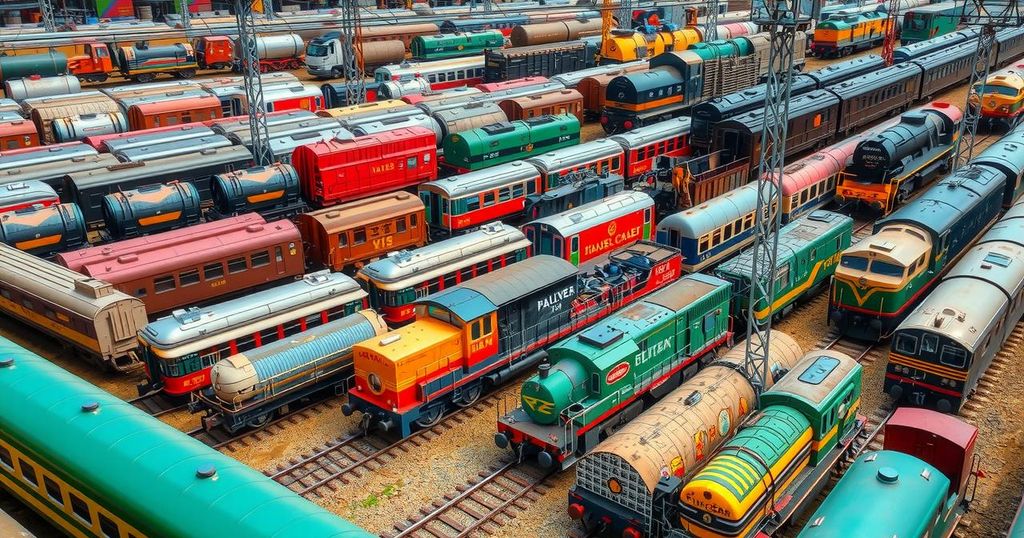Uganda Railways Corporation is evaluating bids from firms in China and South Korea for a $48 million deal to supply 10 diesel-electric locomotives. The locomotives will be used on the rehabilitated Tororo-Gulu route and the main line to Kampala. The ongoing projects are supported by important government funding and aim to address declining cargo transport volumes.
The Uganda Railways Corporation (URC) is currently assessing bids from both Chinese and South Korean companies for a $48 million project to supply 10 new diesel-electric locomotives. This tender closed on March 7, attracting proposals from four firms: China Shandong International Limited, CRRC Qishuyan Company Limited, and Sung Shin Rolling Stock Technology Limited from China, alongside South Korea’s Dalian Lambo Machinery Manufacturing Co., Ltd.
According to URC spokesperson John Linonn Sengendo, the new locomotives are intended for use on the Tororo-Gulu route, which is presently undergoing upgrades. They will also serve to support existing operations on the main line from Malaba to Kampala. Sengendo further stated, “The contractor has given December this year as the deadline to handover the complete project, which is 10 months from now,” highlighting the importance of timely completion of this upgrade.
The ongoing rehabilitation of the 375km Tororo-Gulu line, financed by the Ugandan government at a cost of Shs199.9 billion ($54.14 million), is anticipated to conclude by December 2025. The project entails various improvements, including drainage enhancements, the construction of new culverts, earthworks, and the rehabilitation of multiple bridges, alongside relaying railway tracks.
Additionally, URC aims to modernize the 265km Malaba-Mukono track as part of a comprehensive five-year plan, supported by funding from the African Development Bank valued at $301 million. This initiative includes acquiring wagons, a multi-purpose water vessel, upgrading railway stations, and enhancing critical infrastructure.
URC managing director Benon Kajuna noted that the corporation currently transports only 250,000 tonnes of cargo annually, a stark decline from the one million tonnes recorded in 2006. Mr. Sengendo attributes this decline partly to the aging infrastructure, which the ongoing projects aim to rectify, thereby bolstering cargo efficiency.
The railway line is a crucial segment of the East African Community’s Northern Corridor, connecting Uganda’s capital, Kampala, to the Kenyan coast, specifically the seaport in Mombasa.
In summary, Uganda Railways Corporation is actively seeking to modernize its operations through the procurement of new locomotives and the rehabilitation of key railway lines. The collaboration with international firms and funding from the African Development Bank aims to reverse the significant decline in cargo transportation. The successful implementation of these projects will enhance connectivity within the East African Community, bolstering Uganda’s logistical capabilities.
Original Source: www.pmldaily.com






